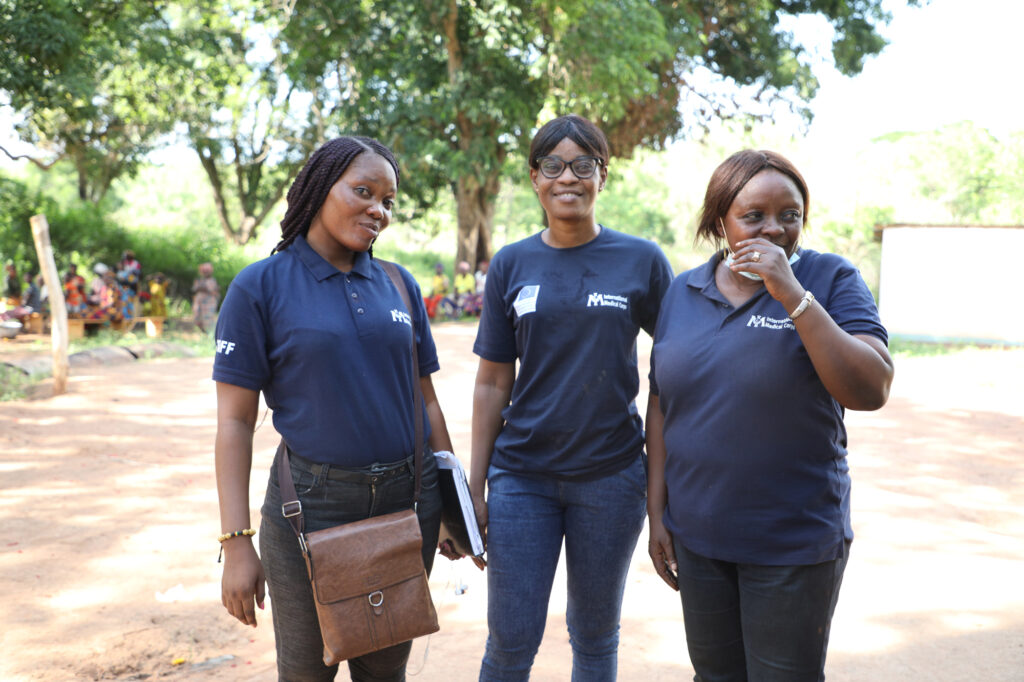During casual conversation, Marie Chantal Gboze laughs generously and speaks with exuberance. It’s inviting. She is the type of person who grabs everyone’s attention at the dinner table with a well-crafted story. When the conversation turns to gender-based violence (GBV) and the gender poverty gap, however, her voice turns passionate and acute—which is still inviting, albeit in a different way. When she adopts this solemn tone, Marie Chantal’s demeanor makes it clear that her work is the most serious thing in the world to her—and that you should take it seriously as well.
Initially, when Marie Chantal was carving out her career in her 20s, she wanted to work in computer science. She got a CompSci degree and eventually worked in the administration department at an international non-governmental organization (NGO). Looking back on that time working in technology makes her smile now, since she soon discovered another passion.
During meetings where she would hear about how the women and girls whom the NGO worked with suffered, something pulled at Marie Chantal. She wanted to know more. She wanted to work with those women and children more directly. After learning of their suffering, she remembers, she thought, “Why am I going to stay in the office?”
It only took a few of these meetings before Marie Chantal followed this pull toward working with underserved communities. She asked a colleague about how she could make the transition to the work that was calling her. The colleague advised Marie Chantal to read some documentation on the subject. She did, and shortly afterward, Marie Chantal was working with the NGO as a social worker.
From there, she transitioned to field work and eventually landed a position with International Medical Corps’ GBV team in the Democratic Republic of the Congo (DRC). At International Medical Corps, she excelled. After only nine months with the GBV team, she was training staff, providing technical support and advising on entire projects. In fact, donors and colleagues recognized her talents and accomplishments when she was asked to present at a conference held in the capital city of Kinshasa.
With this impressive resume, built by Marie Chantal in only a few years, it seemed almost natural that an International Medical Corps GBV technical advisor asked Marie Chantal to lead a new country program for GBV prevention and response in the Central African Republic (CAR).
It’s clear that Marie Chantal’s work is founded on compassion. She embraces their suffering and joy, which is probably the key to her success. “This is a very great job,” Marie Chantal says. “Many women experience GBV. When you provide your support to these women, you help them find out that they have strength to overcome what they experienced. Then, one day, a woman will say to me, ‘Thank you. Now I know who I am. I thank this organization.’ She trusts in herself now. This smile on this lady’s face—it’s really a great job.”
Marie Chantal speaks fondly of CAR. “It’s a beautiful country. Very green. People are warm and friendly.” Life is very different for those who live outside the capital, Bangui, she says. “In the provinces or villages, they have no roads. Women and girls are there. Communities are there. But in villages, sometimes there is no school. Young girls are forced into marriages, then motherhood, at a young age, without a health structure.”
But things are changing in CAR now, thanks in part to Marie Chantal and her team. She tells of a woman who attended a meeting in the axis of Alindao, a region in which Marie Chantal coordinates GBV programming. The woman had kept her story of the GBV trauma she experienced from everyone she knew, fearing her husband would repudiate her. But the program that Marie Chantal coordinates gave the woman the space to share her story and find a sense of relief. The woman received new clothes and no-cost medical care as well.
Marie Chantal’s team also provides economic opportunity for women in CAR, some of whom have been able to start their own farm and begin earning their own money for the first time in their lives.
Hearing about the struggles facing women and girls in CAR, it is encouraging to know Marie Chantal, who with an exceptional level of competence and dedication is working to improve the situation. She says that she is always pushing herself. A regular refrain of her inner monologue, as she describes it, is “Marie Chantal, you have to do more.” It’s almost as if she is the living example of the message she has for GBV survivors: “You aren’t stuck in this life. You can overcome and go forward.”
